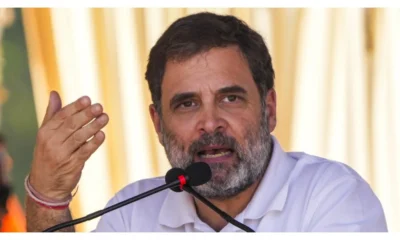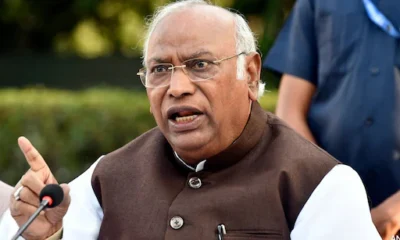[vc_row][vc_column][vc_column_text]
In what could be its last Cabinet meeting before the Lok Sabha election is announced and model code of conduct kicks in, Modi government on Thursday, March 7, approved a raft of decisions designed to win over different sections.
The Union Cabinet and the Cabinet Committee on Economic Affairs (CCEA) together approved 30 decisions, which included decision on posts open for reserved categories in Universities, a deal for sugar mills, projects for Delhi Metro, a committee to draw up norms for unauthorised colonies, setting up 50 Kendriya Vidyalayas (KV), a push to infrastructure and power projects and expanding health insurance benefits to ex-servicemen.
Since last week, Cabinet and CCEA have together taken 96 decisions.
Reservation quota in Universities
The Union Cabinet cleared an Ordinance on reservation mechanism for appointment of faculties in universities. Earlier this week, Human Resource Development Minister Prakash Javadekar said the Centre was committed to restoring the reservation roster in educational institutions following a series of protests over the issue by various students’ and teachers’ organisations.
The political implications of the decisions were evident in clearing the Ordinance on the changed reservation policy for faculty recruitment in universities and colleges that would lead to the consideration of the institution, rather than individual departments, as a unit for calculating reserved category seats.
An Allahabad High Court order in July 2017 mandating universities to make department-wise appointments had resulted in a major reduction in the number of reserved category seats. Petitions filed by the Union Human Resources Development Ministry in the Supreme Court were dismissed.
The stand by the courts had led to major changes in the roster system, which had provoked pushback from leaders representing scheduled caste and scheduled tribe communities. It was argued that the new system drastically reduced the number of reserved seats.
The ordinance reverses the courts’ stand and classifies an entire university or college as a single unit for determining Scheduled Caste (SC), Scheduled Tribe (ST) and Other Backward Class (OBC) quotas.
New Kendriya Vidyalayas
The Union Cabinet approved 50 new Kendriya Vidyalayas with a focus on areas that are hotbeds of left-wing extremism and where there is a high concentration of Central Reserve Police Force or railway employees. Union HRD Minister Prakash Javadekar said nearly one lakh students will benefit from the decision and it will create employment opportunities also.
The new KVs, which will start functioning from the 2019-20 academic session, will cater to one lakh students and help increase the number of KVs to 1,252. The government has set aside Rs 1,579 crore for development of these KVs over a period of five years. Around 12.5 lakh students study in the KV system.
Sugar industry
In a major boost to the sugar industry, the Union Cabinet on Thursday announced an additional soft loan of Rs 12,900 crore to sugar mills – almost 300% hike since last year – for creation of ethanol capacity and another Rs 2,600 crore to molasses-based standalone distilleries.
In June 2018, the government had announced a soft loan of Rs 4,400 crore and provided an interest subvention of Rs 1,332 crore to mills over a period of five years, including a moratorium of one year to augment ethanol output.
“To augment ethanol capacity, the government has approved additional funds. These additional funds will be in two tranches — Rs 2,790 crore and Rs 565 crore,” Finance Minister Arun Jaitley told reporters after the Cabinet meeting. He added that these funds are part of the government’s support for the stress in the sugar sector. “They (mills) have some stress and outstanding dues. The government is trying to augment the income of mills,” Jaitley explained.
As per industry estimates, sugarcane dues have crossed Rs 20,000 crore till February of this marketing year.
Power sector
With an aim to revive the stressed power sector and encourage hydropower sector, the government on Thursday approved investment proposals worth over Rs 31,600 crore in four power projects. These projects, including coal-based thermal plants and hydropower, are likely to be operational by 2023-24.
The Cabinet Committee of External Affairs (CCEA) has approved the investment of Rs 10,439.09 crore for the 2×660 MW Buxar Thermal Power Project in Bihar. The plant, which is expected to improve deficit power scenario in the eastern region, will be set up by SJVN Thermal Private Ltd, a wholly owned subsidiary of SJVN, a mini-ratna CPSU.
The Cabinet also cleared investment proposal for a 2×660 MW Khurja Super Thermal Power Plant in Bulandshahr entailing an investment of Rs 11,089.42 crore and Amelia coal mine in Singrauli district of Madhya Pradesh at a cost of Rs 1,587.16 crore.
Power Minister RK Singh said that the Cabinet also approved recommendations of a group of ministers relating to stressed power projects. These recommendations included a grant of coal linkage for short-term PPAs, allowing existing coal linkage to be used in case of termination of PPAs due to payment default by distribution companies and procurement of bulk power by a modal agency against pre-declared linkages.
Among the hydropower projects, the CCEA approved investment for the acquisition of Lanco Teesta Hydro Power Ltd and the execution of balance work of the Teesta Stage-VI Hydro Electric Project by NHPC in Sikkim at a total cost of Rs 5,748.04 crore.
Besides, another Rs 4,287.59 crore was approved for the construction of Kiru Hydro Electric Project (624 MW) by Chenab Valley Power Projects Pvt Ltd in Jammu and Kashmir. In a fillip to the hydropower sector, the Cabinet approved a slew of measures including providing renewable energy status for large hydel projects and new funding provisions.
Air links
Approval was also granted for extension of time and scope for revival and development of unserved and under-served air strips of state governments, Airports Authority of India, civil enclaves, CPSUs, helipads and water aerodromes at a cost of Rs 4,500 crore. The CCEA also approved Rs 2,790 crore towards interest subvention for extending indicative loan amount of Rs 12,900 crore by banks to sugar mills.
Ex servicemen
In another decision expected to benefit over 40,000 ex-service personnel, the Cabinet approved the grant of ex-servicemen contributory health scheme (ECHS) facilities to WWII veterans, emergency commissioned officers, short service commission officers and premature retirees.
Metro link
The Cabinet cleared three of the six corridors planned under Phase IV of the Delhi Metro network. The Tughlakabad-Aerocity (20.20 km), the Janakpuri West-RK Ashram (28.92 km) and the Mukundpur-Maujpur (12.54 km) sections will have a project outlay of Rs 24,948.65 crore.
The Delhi Metro Rail Corporation (DMRC) and the government will be taking up the project in the existing 50:50 sharing ratio. Of the total 61.67 km length of the approved sections, 22.35 km will be built underground while 39.32 km will be elevated. A total of 46 stations will be added. The announcements were made by Union Finance Minister Arun Jaitley.
Miscellaneous
In a move to sustain its improvements in reducing the HIV burden, the CCEA approved continuation of the fourth phase of the National AIDS Control Programme for three years from April 2017 to March 2020. An outlay of Rs 6,434.76 crore has been earmarked for the three years.
Flood Management and Border Areas Programme, with an outlay of Rs 3,342 crore till 2019-20, was approved for effective flood management across the country.[/vc_column_text][/vc_column][/vc_row]


 India News12 hours ago
India News12 hours ago
 LATEST SPORTS NEWS11 hours ago
LATEST SPORTS NEWS11 hours ago
 India News11 hours ago
India News11 hours ago
 India News11 hours ago
India News11 hours ago
 Latest world news5 hours ago
Latest world news5 hours ago
 India News4 hours ago
India News4 hours ago















